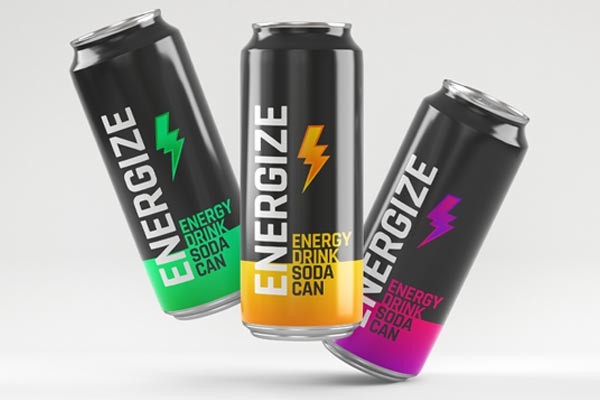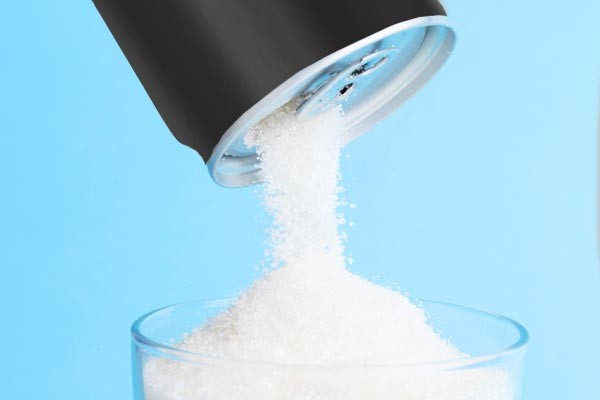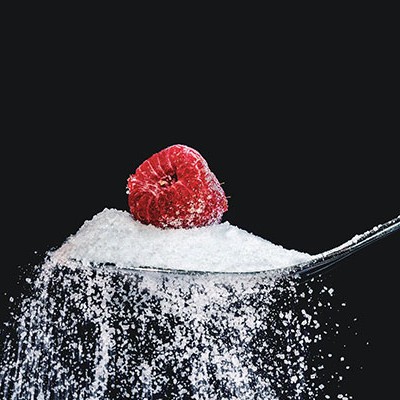Energy Drinks: Are They Harmless or Should We Be Worried?

The popular kid on the block: the energy drink
We have seen a great upsurge in the consumption of energy drinks (Monster, Red Bull, Mother, V etc.) over the last decade due to claims of boosted exercise performance, improved concentration, and mitigating fatigue. In fact, in one study of 1620 college students, 78% reported regular energy drink consumption. However, with this notable increase in consumption, we have observed a growing fear clouding energy drinks due to the perceived dangerous side effects of substances such as caffeine, guarana, and taurine.
Energy drinks are largely frowned upon by the general public, but is this justified? Or is it just a misinterpretation based on demonisation by the media and a lack of knowledge on the public’s behalf?
This article aims to clear up some of the myths and confusion surrounding energy drinks by highlighting the research takeaways from a recent scientific review paper. Most of the concerns surrounding the potential negative health effects of energy drink consumption tend to focus on the heart and cardiovascular implications, so I’ve selected a review paper highlighting these consequences specifically to pick apart this topic.
Do these drinks actually have benefits?
In one study, it was observed that cognitive function could be improved for up to 6 hours following the consumption of a single energy drink consumption.
Another study saw that perceived vigour and sensations of fatigue were improved following energy drink consumption.
Finally, a review paper concluded that energy drinks show positive, beneficial effects on exercise performance in various sports activities. So yes, it’s evident energy drinks can have some positive benefits.

Is caffeine the devil in the mix?
It is widely perceived that caffeine consumed in high doses is related to negative cardiac outcomes, including heart palpitations, high heart rate and blood pressure, and arrhythmias. Indeed, one study showed that consuming one Red Bull increased participants’ average systolic and diastolic blood pressure from 112 to 121 mm Hg and 73 to 76 mm Hg, respectively. However, caffeine has also shown notable health benefits in the research, including an increase in flow-mediated dilation (indicative of improvements in blood vessel health) and a decrease in levels of CRP (a marker of inflammation). Furthermore, in a large prospective study, those under 60 years of age, those who drank more cups of coffee were less likely to be hospitalised and less likely to develop cardiac arrhythmias. In a recent systematic research review on habitual caffeine consumption, it was also shown that moderate consumption led to beneficial – or at worst – neutral effects.
There is evidence, however, that caffeine consumed in very high doses can be harmful. Symptoms of a caffeine overdose can include heart palpitations, irritability, tremors, insomnia and high blood pressure. I know what you’re thinking... do energy drinks contain enough caffeine to put us at risk of an overdose? In short, no, they don’t. In fact, according to a recent review paper, all commercial energy drinks fall within the 400 mg limit set by the Therapeutic Goods Administration (TGA; Monster = 160 mg, Red Bull = 80 mg, Rockstar = 160 mg), with 400 mg per day considered to be safe and healthy for most adults. Thus, considering the moderate caffeine content found in energy drinks (comparable to most Starbucks products), it seems extremely unlikely that we should be worried or that the amount of caffeine present in an energy drink is why not consume them. You would need to be consuming more than 2 energy drinks per day to consume sufficient caffeine to surpass the “unhealthy” limit set by the TGA.
Pick your poison, sugar or artificial sweeteners?
One thing worth considering is that most energy drinks on the market today offer regular and ‘diet’ options, with the diet option, of course, replacing sugar with artificial sweeteners. So, if we choose to have an energy drink, should we go with the regular or diet option, or are they both bad?
There is nothing inherently unhealthy or fattening about sugar. The problem with sugar is that it’s delicious and calorie-dense, meaning it is straightforward to consume a lot of very quickly. When someone consumes too much sugar, it can make it very difficult to control overall daily calorie intake, putting you at a heightened risk of weight and body fat gain.
So, it isn’t the sugar that’s the problem. It’s the fact that sugar encourages us to consume a lot of calories very quickly.
Considering maintaining a healthy body composition is of paramount importance to health status, I recommend opting for the diet or sugar-free options of energy drinks. A full-sugar energy drink might contain upwards of 50 grams of carbohydrates in a single can, which can take up a massive chunk of your daily carbohydrate allowance while providing minimal satiety.
The next question you might ask is, “well, aren’t artificial sweeteners worse for you than sugar?”. Quite simply, absolutely not. In a 2017 review, the authors concluded that there was no convincing evidence that artificial sweeteners cause harmful effects (cancer, diabetes, weight gain) in humans when consumed in usual doses. Furthermore, in a 2014 paper, the authors stated that replacing full-sugar versions of beverages with their diet counterparts results in modest weight loss and may be a useful dietary tool to improve compliance with weight loss.
So, with that in mind, I think it is in our best interest to go for the sugar-free versions with that in min. Unless you’re consuming upwards of 5 cans of diet energy drinks per day, I see no risk to health coming from the artificial sweeteners. And, if you were consuming 5 cans per day, you’d be well above the recommended caffeine “safe” guidelines anyway.

What about the other ingredients like taurine, carnitine, guarana and B vitamins?
Something that I’m sure is surprising to many is that taurine and carnitine consumption is actually linked to overall positive health benefits on the cardiovascular system. So, it seems that these ingredients are even less likely than caffeine to cause harm. And no, taurine is not extracted from bull semen (people have claimed this, not joking). Researchers in this review paper actually recommended supplementation of taurine and carnitine for those at risk of high blood pressure, high blood fats and cardiomyopathy.
Guarana basically has a similar effect to caffeine on a lesser scale. So, again, it seems unlikely that guarana should cause alarm, although more research is necessary.
B vitamins are often found in high doses of energy drinks. Some proponents claim that these are required for proper cell and mitochondria function and energy production, with some even suggesting they have stimulatory effects on metabolic rate. In addition, studies have shown that B vitamins can reduce the risk of death from stroke, heart failure, or heart disease and reduce homocysteine levels, with high levels of homocysteine associated with cognitive impairments and mental disorders like heart health risk. So again, it seems we have no reason to avoid energy drinks based on their B-vitamin content.
Summary
“Under moderate use and without combining other stimulants or alcohol, the lack of negative case reports makes the risk for such side effects seem negligible. However, it is noteworthy that a large number of serious health risks resulted due to overconsumption of the products…co-ingestion with other substances…or their ingestion in a short period of time.”
Based on the above statements by the authors in our key paper, we can conclude that the large majority of reported health hazards associated with energy drink consumption were due to either excess consumption of the drinks in a short time (possibly leading to caffeine overdose), or when they were consumed with other substances like alcohol or drugs.
The research covering the ingredients of the beverages, such as caffeine, taurine, carnitine, and guarana, suggests these components have a neutral to positive health effect, unlike what many people assume. Thus, energy drinks appear to be safe when consumed moderately (less than 2 per day) and isolated from other substances.
So, don’t feel like you need to be worried about throwing back a Monster before training, and if anyone gives you crap, link them to this blog!

Jackson Peos has completed a PhD at the University of Western Australia, and has a straightforward approach to nutrition and supplements.
He's completed his BSc in Sports Science, and Exercise & Health, and his BSc (Hons) in Exercise Physiology.
More about Jackson PeosReferences:
- Wassef, B., Kohansieh, M., & Makaryus, A. N. (2017). Effects of energy drinks on the cardiovascular system. World journal of cardiology, 9(11), 796–806. https://www.ncbi.nlm.nih.gov/pmc/articles/PMC5714807/
- Alsunni A. A. (2015). Energy Drink Consumption: Beneficial and Adverse Health Effects. International journal of health sciences, 9(4), 468–474. https://www.ncbi.nlm.nih.gov/pmc/articles/PMC4682602/
- Marczinski CA, Stamates AL, Ossege J, Maloney SF, Bardgett ME, Brown CJ. Subjective State, Blood Pressure, and Behavioral Control Changes Produced by an “Energy Shot” J Caffeine Res. 2014;4:57–63. https://pubmed.ncbi.nlm.nih.gov/25054080/
- Kim IK, Kim KM. Energy drink consumption patterns and associated factors among nursing students: a descriptive survey study. J Addict Nurs. 2015;26:24–31. https://pubmed.ncbi.nlm.nih.gov/25761160/
- Miller PE, Perez V. Low-calorie sweeteners and body weight and composition: a meta-analysis of randomized controlled trials and prospective cohort studies. Am J Clin Nutr. 2014;100(3):765-777. doi:10.3945/ajcn.113.082826 https://www.ncbi.nlm.nih.gov/pmc/articles/PMC4135487/
- Lohner S, Toews I, Meerpohl JJ. Health outcomes of non-nutritive sweeteners: analysis of the research landscape. Nutr J. 2017;16(1):55. Published 2017 Sep 8. doi:10.1186/s12937-017-0278-x https://pubmed.ncbi.nlm.nih.gov/28886707/
- Food Standards Australia New Zealand (FSANZ). Supporting document 1 - Safety assessment of caffeine (P1056 - Caffeine review). Published 2022 December 19.
https://www.foodstandards.gov.au/food-standards-code/proposals/p1056
Related Blogs

The Ultimate Guide to Bulk Nutrients' Protein Water!
Posted by Ebony Abblitt
Estimated reading time: 6 minutes

Does Sugar Make Kids Hyperactive?
Posted by Dayne Hudson
Estimated reading time: 5 minutes

Why You Need to Try Protein Balance!
Posted by Ebony Abblitt
Estimated reading time: 5 minutes



























